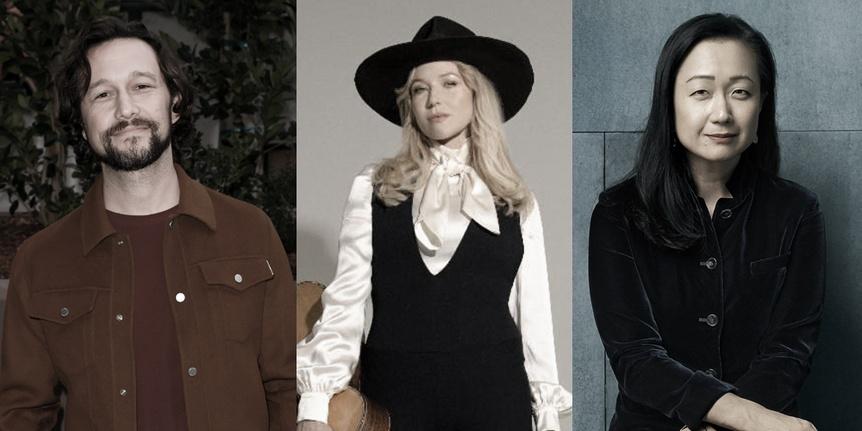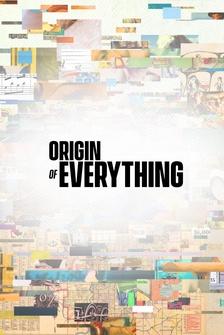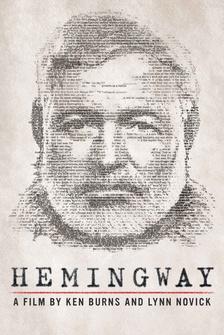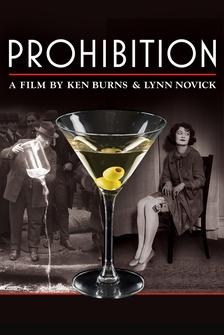(soft poignant music) - [Ethan] Where do I begin?
I'm a Buddhist.
I'm a son.
Sometimes I'm a chef.
(grill sizzling) I'm a bridge between Cambodia's difficult past and its unwritten culinary future.
I want to find out how Cambodian food would evolve if the war had not happened.
- [Announcer] We're here to announce Rising Chef of the Year.
- [Announcer] And the winner is... - Whew.
(knife chopping) (water splashing) Cut up vegetables and get dining room set.
(utensils clanking) So in creating my dishes, I like to emotionally draw into a moment dishes that would better resonate to the Cambodian community.
Fried chicken marinated in kroeung, which is the herb paste that used quite a bit in Cambodian food.
So you're having the galangals, the turmerics, the garlic, the lemongrass.
That's all marinated into a whole chicken that becomes Americanized as a fried chicken.
So that's the cultural bridge.
We're not gonna open doors until we're ready.
You here for the Cambodian fried chicken sandwich?
Sure.
I'm opening doors.
Hello.
- [Customer] Number-one fan.
- [Ethan] All right, all right.
Stay warm.
It'll be a few minutes.
- [Reporter] It is Thursday.
There are dozens of Thai and Vietnamese restaurants in our region, but few, if any, Cambodian ones.
- [Reporter] There's a Cambodian chef in the Hermosa neighborhood, and even though dinner is sold out months in advance, he says you can still taste his remarkable food at lunch.
- You're welcome.
- Take care.
- You as well.
Take care.
- We did it.
- Sweet.
Perfect.
That was a fun little rush.
Hermosa kind of in a weird, funny way, it just kind of happened.
I left high school before I graduated, so I dropped out of high school.
I was an honor student, but it was not my route.
I loved people.
I loved food, and I wanted to venture out there.
Parents wasn't quite happy with that decision, but they gave me the caveat if you're gonna venture out there, really learn from people.
I met some amazing mentors who pushed me on the path to more fine dining.
I worked at the Alinea Group's cocktail bar, The Aviary, and Next.
At that time, I thought I'm entering the height of my career.
(bell rings) (Ethan laughs) - Our family has a total of six restaurants.
My grandparents were born in China, but my parents were born in Cambodia.
Our family's culinary journey started more than half a century ago.
For them, food was always a center part of who they were.
Noodle stand was what we had as a family, even during the war.
Starting in the early '80s, over 100,000 refugees were resettled abroad, including our family.
We have been in this intersection in Chicago since 1986.
(customer speaks in Cantonese) - Dad was very proactive in trying to get me to come back to the family business.
As with most immigrant families, we always had a menu that was catered to the public, and when we first opened here, it was a Chinese-American spot with your usual suspects, kung pao chicken, orange chicken.
Absolutely love them.
I will still indulge in them to this day.
And separately, we always cooked the stuff that we enjoyed, funky stuff, fermented stuff, half-rotten stuff that hits your senses and livens you up.
We love them.
Who is to tell us that these flavors are so bizarre?
When I told the family, it was like, "I'm going to put Cambodian food out there," Like, "Ew, who's gonna eat prahok?"
I'm like, "You eat it.
You love it.
What's the problem?"
- [Ethan] Hm?
- [Ethan] Having a format that we as a family have always done, being Chinese-American spot, to deviate from a proven model concerns them.
Despite my parents' doubts at night, I converted space into our tasting menu called Family Meal, emphasizing dishes we grew up with as a family.
A lot of it are Cambodian-inspired, questioning what if our aspirations and inspirations on food, cultures, art, was not interrupted because of war.
The dishes that come out of Family Meal are certainly a lot more personal.
Recently, my parents and I ate at a fancy restaurant.
Mom said something that really gutted me.
They felt out of place.
She never dreamt of dining in an environment like that.
My parents are illiterate, but they speak four languages and three dialects of Chinese.
Their lack of education have them feeling as if they are relegated to a specific social setting.
Their natural wit, instincts, and ability to connect with people prove otherwise.
This is for them.
- Thank you for having us.
- Enchante.
- Cheers.
- Cheers.
- [Ethan] Welcome to Family Meal.
(dish simmering) (bowels clattering) - [Diner] Wow.
- [Diner] So you don't know what you win.
- [Diner] What do we have, E?
- We have a little oxtail and winter melon soup.
- [Diner] Oh, chicken, man, that's good.
So are you originally from Cambodia?
- [Ethan] I was born in a refugee camp in Thailand.
I lived there until I was three, but I have no memories of the camps.
My parents are not shy to remind us explicit moments during the war and how they took care of us.
(tense music) (object stirring) (object clattering) - We would like you to take a moment of silence to pay respect to spirit of the [Cambodian] genocide.
(leader chants in foreign language) (attendees chant in foreign language) (monks chant in foreign language) (all chant in foreign language) - The genocide also resulted in the loss of culture, a loss of art, including culinary.
People had to prepare food and cooked however they could to survive.
People would not prepare things that would permeate aromas through the air 'cause they had to conceal that they're cooking.
If I stir-fry this, the general is smelling it.
It's like, who's cooking?
Who is having extra food that they are not allowed to have?
A fundamental form of survival that you have to hide.
It is genocide that involves family members.
So when you're creating memories, and you're creating a dish that brings you back to a time period before the war, you want this dish.
You loved it, but now it's like you had this dish before grandma was executed.
(unsettling music) I was too young, but hearing stories of, in my older siblings and my parents, how food for them, it just brings back memories of being in the refugee camps and being in a space and time period with so much trauma that it is hard to find memorable moments of happiness with food.
I connected with a generation where you can cook as you want to cook without the emotional attachments that our elders went through.
And let's embrace the flavors, allow the ingredients to come to full light.
(poignant synthesizer music) I was trained in a classic French technique.
That also bridges gap to Cambodia being a former colony of France.
Pre-war, a lot of their dishes are influenced by French culture.
And when the war happened, all of that got wiped out.
In terms of culinary futurism, if the war had not wiped out, and we followed a similar path of food and culture, how can we see Cambodian food be evolved?
Are we embracing classical French techniques but using the integrity and the flavors that properly represent Cambodian food?
Culinary futurism does have to take privilege into account.
In an effort to make things zero waste, I try to repurpose every single ingredient.
So sustainability for us as a family also is rooted in survival.
Why do we need to hide what we eat and we search for?
Parents have now given me this canvas.
It's time to make it happen.
(diners laughing) - [Ethan] The opener for Family Meal is the duo of classic dips.
One is tuek kroeung, which is our white fish dip.
Technique is more along the lines of a French rillette traditionally with the dish, just create more of a watery lime fish sauce dip.
I took that approach, same ingredients, and whipped garlic oil into it.
So it creates this like luscious component that you tend to find in like a rillette in French cuisines.
That is enjoyed with crudites and a lettuce wrap that you are eating with your hands, as we would eat at home.
(diner chattering in Khmer) - It's a really great experience because we're not used to having Khmer food presented this way.
- Mm-hm.
- So just the way you elevate it, it's really great.
(diner laughing) - [Ethan] It's been wonderful to see Mom and Dad smile and just super curious as to who's coming to eat.
Can I make dishes, which now they have?
What's being offered next?
It is absolutely invaluable to me to have reignited the creativity in Mom.
(diners speak in Khmer) - [Diner] Oh, look at that.
Look at the presentation.
- [Ethan] So the dish that started this journey.
We have to start moving forward and embracing an evolution in food.
- Wow.
- [Ethan] Embracing an evolution in culture.
- This chicken is amazing.
- You definitely get the flavors of home and like, you know- - Yeah.
- Your past and family.
All that stuff is there, but it's also something unique because it's new, too, in a way.
- I think for us maybe as the younger generation is to see how we can make our flavors, our palates that we are familiar with, make it easier and accessible for the next generation and not lose the flavors of what we grew up with.
And wrapping up entrees for tonight, steak with tek prahok.
- Yay.
You get it from your parents, you know?
And then you make it your own, but also the memories you have as a child, right?
And then you bring it into this dish.
- Cooking feeds people, feeds their soul.
- [Diner] It's true.
- [Punisa] Part of healing as well.
- [Ethan] It is.
(audience applauds) - [Announcer] Tonight we're here to announce Rising Chef of the Year.
(audience applauds) (dramatic percussive music) - [Announcer] And the winner is Ethan Lim, Hermosa.
(audience cheers and applauds) - I'm joined this evening by the most amazing date a person could have, and that's Mom.
(audience cheers) Thank you for your discerning palate with the simple, "Mm, it's good."
(audience laughs) But personally, more importantly, I definitely wanna thank Mom for instilling tenacity in us.
Thank you for having us hold on to our food traditions, beginning with our humble noodle stand in Cambodia more than half a century ago.
So, thank you, everybody.
(audience cheers) (poignant synthesizer music) (poignant synthesizer music continues) (clapboard claps) (intriguing electronic music) (intriguing electronic music continues)













